Life
Sign up for our newsletter
We summarize the week's scientific breakthroughs every Thursday.
-
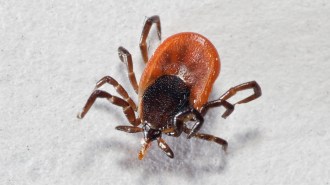 Health & Medicine
Health & MedicineHow some ticks protect themselves from deadly bacteria on human skin
A gene that ticks acquired from bacteria 40 million years ago may help the arachnids keep potential pathogens at bay while feeding on blood.
-
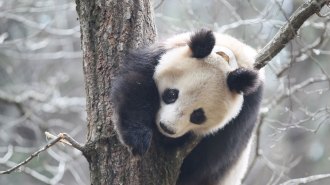 Animals
AnimalsGiant pandas may roll in horse poop to feel warm
By coating themselves in fresh horse manure, wild giant pandas may be seeking a chemical in the poop that inhibits a cold-sensing protein.
-
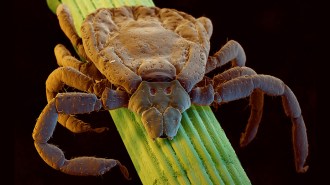 Life
LifeDog ticks may get more of a taste for human blood as the climate changes
At high temperatures, some brown dog ticks that can carry the bacteria that causes Rocky Mountain spotted fever seem to prefer humans over dogs.
-
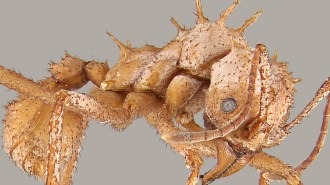 Animals
AnimalsMineral body armor helps some leaf-cutting ants win fights with bigger kin
Researchers have found that at least one species of leaf-cutting ant has a tough layer of calcite on its exoskeleton.
-
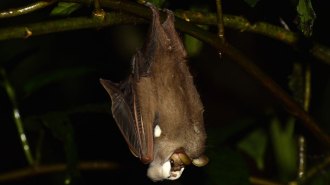 Animals
AnimalsA face mask may turn up a male wrinkle-faced bat’s sex appeal
The first-ever scientific observations of a wrinkle-faced bat’s courtship shows that, when flirting, the males raise their white furry face coverings.
By Susan Milius -
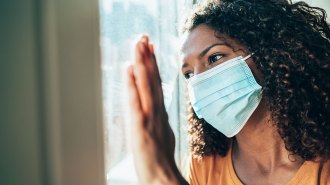 Neuroscience
NeuroscienceLonely brains crave people like hungry brains crave food
After hours of isolation, dopamine-producing cells in the brain fire up in response to pictures of humans, showing our social side runs deep.
-
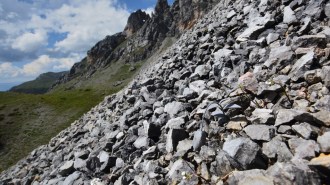 Plants
PlantsThese plants seem like they’re trying to hide from people
A plant used in traditional Chinese medicine has evolved remarkable camouflage in areas with intense harvesting pressure, a study suggests.
-
 Environment
EnvironmentPlastics are showing up in the world’s most remote places, including Mount Everest
From the snow on Mount Everest to the guts of critters in the Mariana Trench, tiny fragments called microplastics are almost everywhere.
-
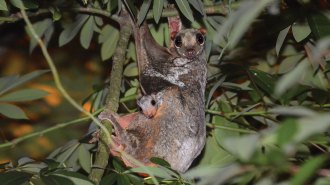 Animals
AnimalsOn a cool night in Malaysia, scientists track mysterious colugos across the treetops
Our reporter tags along for nighttime observations of these elusive gliding mammals.
By Yao-Hua Law -
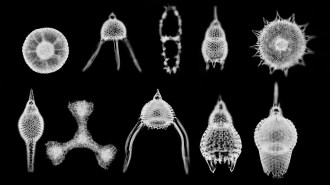 Earth
Earth50 years ago, scientists named Earth’s magnetic field as a suspect in extinctions
In 1970, researchers saw a link between magnetic pole reversals and extinctions. Fifty years later, scientists have uncovered more suggestive examples but no strong evidence of a direct link.lamb
-
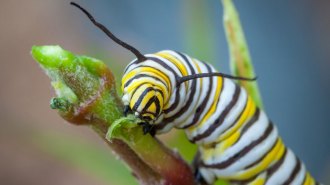 Life
LifeMonarch caterpillars head-butt each other to fight for scarce food
Video experiments show that monarch caterpillars turn aggressive when there’s not enough milkweed to go around.
-
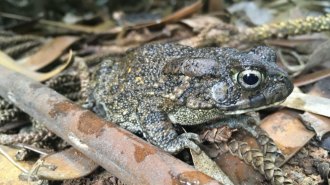 Animals
AnimalsGuttural toads shrank by a third after just 100 years on two islands
Introduced in the 1920s, toads on two islands in the Indian Ocean have shrunken limbs and bodies that may be evidence that "island dwarfism" can evolve quickly.
By Jake Buehler